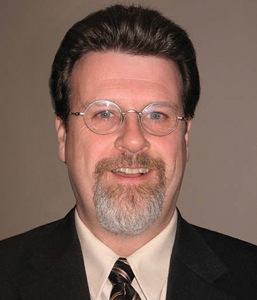
The language police come to Alberta
By Brian Robertson
Features Opinion For a couple of decades now many of us in English Canada have been amused, confused, and troubled by the phenomenon of “language policing” in Quebec. How ludicrous — some of us have always thought — to use the power of the state to prosecute people for the “offence” of saying what they mean in English rather than in French.
For a couple of decades now many of us in English Canada have been amused, confused, and troubled by the phenomenon of “language policing” in Quebec. How ludicrous — some of us have always thought — to use the power of the state to prosecute people for the “offence” of saying what they mean in English rather than in French.
Unfortunately, this unique form of absurdity ”“ the public policing of
non-offensive everyday terminology ”“ is not unique to the government of
Quebec. Last month the Province of Alberta introduced its new security
legislation ”“ the Security Services and Investigators Act (Bill 10). In doing so, Alberta joined the Province of Ontario in proposing to
make it a provincial offence (punishable in Alberta by a fine of up to
$5,000 and/or a prison term of up to one year) for a security officer to
call himself or herself a security officer. In Alberta, as in
Ontario, this bizarre prohibition is going to be applied not only to
the 7,000 or so contract security employees who work for security
service providers, but also to the 5,000 or so uniformed in-house
security officers who have been providing professional security
services to universities, hospitals, shopping malls, public
attractions, and other venues across Alberta ”“ all under the title of security officer— for decades now.
This is an old and stupid debate. The ostensible reason for
prohibiting the term security officer is to protect the public from
mistakenly thinking that security officers are cops. Yet provincial
security regulators virtually never receive complaints from members of
the public who have experienced this form of confusion, and the
suggestion that there are very many members of the public who, upon
hearing the words security officer, think that they are hearing the
words police officer, is either an insult to the intelligence of the
people of Alberta or proof that the Province has come upon evidence of
a province-wide epidemic of deafness that they haven’t told anyone
about.
No. The only conclusion that one can arrive at is that in Alberta, as
in Ontario, the regulation of the private security industry is being
disproportionately influenced by the political agenda (and the
political clout) of police membership organizations (what in any other
context would be called police unions) under the broad leadership of
the Canadian Police Association (CPA). The surreal assertion that the
police should have some kind of exclusive right to the use of the word
“officer” has been the subject of an inexplicably determined campaign
by the CPA for years now
Are the police legitimate stakeholders in the regulation of the private
security industry? Sure they are. And the input into regulatory
reform which has been provided by police leadership organizations (like
the Canadian Association of Chiefs of Police, or the national Police
Sector Council) over the last few years has been helpful and
constructive. But police unions are like corporations: the
imperativeness of their mandate to serve the best interests of their
members cripples their ability to objectively participate in dialogue
about public policy and public interest. The more the private security
industry thrives, the fewer high-paying jobs there will be for cops. So
police unions are opposed, as a matter of fundamental principle, to the
growth, development, and evolution of the private security sector. This leaves them ill-equipped to provide governments with useful advice
on how to manage the growth, development, and evolution of the private
security sector.
Hope, however, springs eternal. The one place where all private
security regulators have always chronically under-performed is in the
area of effective consistent proactive enforcement of security
regulations in the field. It may be that in the near future there will
be inspectors from Alberta”˜s Ministry of Solicitor-General and Public
Safety prowling the streets of Calgary and Edmonton intent on
prosecuting those minimum wage shift workers who dare to refer to
themselves as security officers.
But if history is any indication,
they’ll probably do a poor job of actually catching them. So perhaps
it won’t matter anyway if the Province goes through with its plans to
pass such a goofy law as part of its efforts to politically pander to
police unions.
Print this page
Advertisement
- Canada looks to up the ante on privacy breach notification
- IP communications receiver for monitoring apps
Leave a Reply